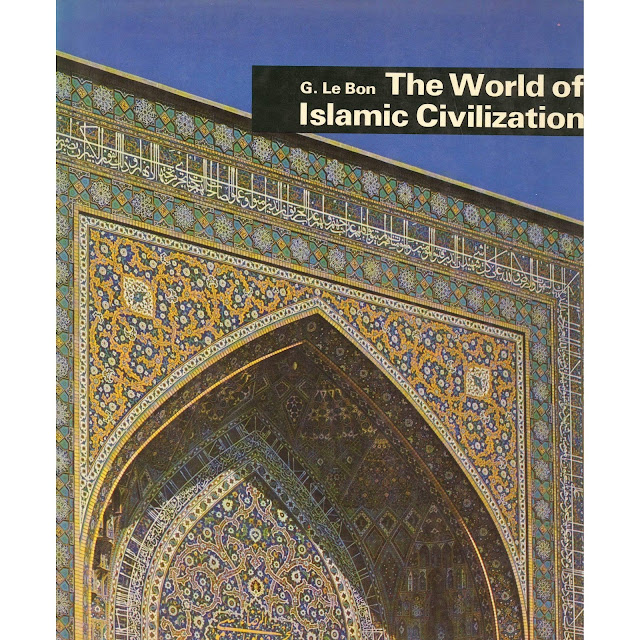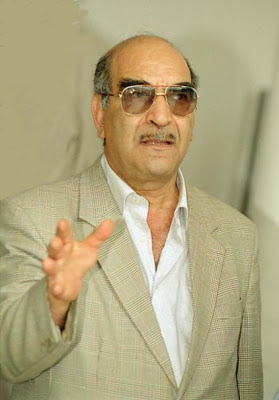"Islam and the Search for African-American Nationhood" Dennis Walker

The presence of Islam in America is as long-standing as the arrival of the first captive Muslims from Africa, making Islam one of America's formative religions. But the long-suppressed indigenous Islam didn't resurface in organized form until the 1930s, when it infused the politico-spiritual drive by the Noble Drew 'Ali and the Honorable Elijah Muhammad to address the appalling social conditions of the ghettoized black masses of the North.
Elijah Muhammad's Nation of Islam would prove to be the most extensive, influential and durable of African-American self-generated organizations. Combining black cooperative entrepreneurship with indigenous Islam-tinged culture and spirituality, the NOI pursued a collectivist nationalist agenda which sought to advance the black masses' cause--within America or without it. At its collectivist height, the NOI achieved a $95 million empire of interlocking black Muslim small businesses and farms--providing a model for "bootstrap self-development" by the marginalized and dispossessed, worldwide.
Bourgeois elements developed within, or engaged by, the NOI sought to weld a united African-American nation out of a range of classes. Outstanding second generation leaders--Warith Muhammad, Louis Farrakhan and Malcolm X--would further imbed Islam in Black America, and extend its relations into the international community. Their media offered an informed and critical outlook on both domestic and international affairs that often paralleled progressive analysts.
What seems clear, after two monumental marches in 1995 and 2005 to the nation's capital, is that the NOI and African-American Muslims will have substantial input into the future direction of the African-American struggle.
But it remains ambiguous whether the developing African-American nation will pursue its still-unfulfilled promise through secession, autonomy or long-term integration. To date, indigenous American Islam has been made a bogey by various white elites in order to regiment their own and other ethnic groups.
About the Author
Dr. Dennis Walker is a Celtic Australian specialist on Muslim minorities and author of two books on Islam and the national question. He reads five Muslim languages, and is author of numerous scholarly papers, articles and reviews in a number of languages, reflecting his wide travels and areas of interest. He has taught at Melbourne University, Deakin University and Australian National University.
(The text was taken from the back page of the book)
%%%%%%%%%%%%%%%%%%%%%%%%%%%%%%%%%%%%%%%%
Title: Islam and the Search for African-American Nationhood:
Elijah Muhammad, Louis Farrakhan and the Nation of Islam
Author: Dennis Walker
Publisher: Clarity Press
Year: 2006
Number of pages: 530
%%%%%%%%%%%%%%%%%%%%%%%%%%%%%%%%%%%%%%%%
Table of Contents
INTRODUCTION
GLOSSARY
I. THE NATION OF ISLAM AND ITS SUCCESSORS AFTER 1975: FROM
MILLENARIAN PROTEST TO TRANS-CONTINENTAL RELATIONSHIPS
1: TO ELIJAH MUHAMMAD'S DEATH IN 1975
The Black Muslims' Original Millenarianism
The Drive for a New Economy and a New Language under Elijah Muhammad
Theological Adjustments up to 1975: the Emergence of Warith ud-Deen Mohammed
Arab World Attitudes to Black Muslims to 1975
2: POST-1975 BLACK MUSLIM MOVEMENTS
Relations with Other Faiths, especially Christianity,under Warith's Leadership
Coalitionism: The Farrakhan Group's Attitudes to Christianity
3: RESPONSES TO THE POST-1973 SOCIAL CRISIS
The Muslim's Struggle Against Ghetto Decay, Crime, and Black Lumpen Sub-Culture
From Elijah's Rhetorical-Secessionism to Frank Integration
4: POST-1975 ATTITUDES TO OVERSEAS MUSLIMS AND AFRICANS
Black Muslim Attitudes to Israel and Middle Eastern Affairs
The New NOI Starts to Empathize with Powerless Whites in America
The NOI and Overseas Islamists
Cargoism
Black Muslim Attitudes to Africa Below the Sahara
Farrakhan and Ghana: 1986
Africa in the 1990s
5: THE RISE OF FARRAKHAN: THE CHALLENGE FOR WARITH
1984: Farrakhan and the Jews
Farrakhan and the East's Orthodox Islam
Ongoing Millenarianism
The Farrakhan-Warith Contest to 1990
6: MATURE WARITHITE ISLAM
Classical Muslims and the Modern West
Jews' and Arabs' Ongoing Input into African-American Identity
II. AFRICAN ISLAM IN THE EVOLUTION OF THE AFRICAN-AMERICAN NATION:
FORMATION AND DEVELOPMENT OF AMERICA'S MULTI-ETHNIC SOCIETY
1: ISLAM IN AMERICAN SLAVERY
Power and Dialogue
Jihad? Integration?
Syncretism or Dissimulation?
Atoms from Islam Transmitted Down New Generations
Post-1960 Reactions to Slavery and Forced Assimilation
The Evolving Critique of Christianity
Original Languages and 20th-century Nationality
2: JEWISH PARTICIPATION IN SLAVERY AND SEGREGATION
3: THE ANGLO-AMERICANIZATION OF OTHER WHITES AND THE
FORECLOSURE OF MICRONATIONALISMS
The Formation of the Ethnic Groups
Ethnic Entry into the American Parliamentarist Political System
4: EARLY ELITE BLACK HISTORIOGRAPHY VIS--VIS ISLAM
Christianity Marginalized
Arabic Writings of Africans Recycled
Qualified Identification with the Wider Arabo-Islamic World
Muslim Slave-Trade Palliated?
The Long-Term Legacy for Scholarship
New Historiography Unites Diverse Black Classes and Groups
Long-Term Patterns of Meaning
III. THE DIFFICULT REBIRTH OF ISLAM AMONG AFRICAN-AMERICANS, 1900-1950
1: SOCIAL CHANGE AND THE BIRTH OF THE MOORS
The Social Crisis in Which Indigenous Islam Took Form
African-American Relations with Jews in the Early Twentieth Century
2: THE MOORISH SCIENCE TEMPLE OF AMERICA
3: THE GARVEYITE MOVEMENT AND ISLAM
UNIA Interactions with Middle Eastern Muslims
The Garveyites' Responses to Muslim Insurrection Overseas
Garvey and Zionism
The Shifts and Opening to Islam in Religion
The Moors and Political Black Nationalism
4: THE MOORS EVOLVE
Increased Awareness of Third World Muslim Countries and Concepts
Purist Rejection of Arab Authority in Islam
5: JEWISH-BLACK INTERACTION AND THE EARLY NOI
Black-Jewish Cultural Relations
WASP and Jewish Distortion of African-American Culture
Ameliorism by Jews and Black American Self-Formation of Identity
6: THE NATION OF ISLAM
IV.THE HEYDAY OF ELIJAH:
HIS ARTICULATION OF IDEOLOGY IN THE 1960S AND 1970S
1: ELIJAH'S PERIOD CONTEXT
The Emergence of Bourgeois Nationalism Among African-Americans
2: NOI PROTEST RELIGION
The Threat to White America
Anti-Christianity
Arabic and Islamic Elements in the Hybrid, Composite Religion
Monotheism
Secession from Islam?
3: RESISTANCE AND ACCOMMODATION TO WHITE AMERICA
Attraction to Creativity by Whites
Economic Affiliation to America?
Parliamentarism, U.S. Institutions
Southern Background and Regionalism
U.S. Prisons
4: THE IMPACT OF ARABS AND MIDDLE EAST ISLAMS
Middle Easterners and the Borders of World Black Community to 1975
The Patterns of Ideology and Discourse to 1975
V. ELIJAH MUHAMMAD'S MUSLIMS IN A CHANGING AMERICA
1: THE NOI IN ECONOMIC MODERNIZATION OF BLACKS
Class Status Shifts Through Conversion
Openings for Affiliating Neo-Bourgeois Muslims to America and Success
2: RISING ETHNIC TENSIONS IN THE 1960S BETWEEN THE BLACKS AND THE JEWS
Affinities Between Blacks and Jews
The Blacks Struggle to Win Control Over Their Education Economic Foci of Conflict
The Failure and Waning of Jewish-American Liberalism
Nation of Islam Activists and Tensions of Black Ghettoes With Jews
3: THE WIDENING DIVERSITY OF AFRICAN-AMERICAN GROUPS
The Black Panthers
Elijah Muhammad on the New Left and the Campus Revolts
Elijah on the Factionalization of Blacks
Muhammad Speaks' Coverage of Internal America
4: POSSIBILITIES FOR RELATIONSHIP WITH THIRD WORLD PEOPLES
Growing African-American Cultural Attraction to Sub-Saharan Africa
Attitudes to Arabs Among Americanist Integrationists and Secular Black Nationalists
5: NOI RELATIONS WITH THE ARAB, MUSLIM AND THIRD WORLDS
Arabization and Islam's Macro-History
Religion, Economics, and the Non-White States
The Israel-Palestine Struggle
Arabs and Persians
Wider Muslim World and Other Third World Countries
Relations with the Communist World
Relations with Spanish-Speaking States and Hispanic Americans
VI. THE RISE OF FARRAKHAN IN ELIJAH'S NOI
1: TENSIONS BETWEEN THE BLACKS AND THE JEWS OVER FOREIGN POLICY TO 1980
Andrew Young and the Shifts in African-American Relations with Jews, Israel and Arabs
Young's Functions in African-American Macro-Consciousness U.S. Foreign Policy and African-American Identity and Institutions-Building
2: THE FORMATION OF MINISTER LOUIS FARRAKHAN WITHIN THE NATION OF ISLAM (1955-1980)
African-American Culture and Mass Mobilization
Farrakhan's Evolution as Leader from Minister of a Mosque to Deputy of Elijah
Farrakhan After Wallace Mohammed's Succession, 1975-1980
The Young Farrakhan and Jewish Culture and Groups
3: PERSPECTIVE: ISLAM AND U.S. BLACK IDENTITY TO 1980
VII. FARRAKHAN'S CHANGING POST-1990 NATION OF ISLAM
1: RELIGIOUS THOUGHT AND CHANGE IN FARRAKHAN'S NEW NOI
Toward the Humanization of Leadership, and Self-Reflection
Combating Envy as a Force for Political Fragmentation
2005: The Quran and the Humanization of Leadership for a United Front of All Blacks
Neo-Fardian Themes in Farrakhan's NOI
NOI Changes and Deepening Engagement with Middle Eastern Islam
The Threat of Violence and Repression of the Religion
2: THE MILLION MAN MARCH: INDUCTION INTO ELECTORAL POLITICS?
The Million Man March of 1995
Political Mobilization after the 1995 Million Man March Militants: Could the U.S. Systemic Disintegrate?
3: DISPARATE BLACK CLASSES AND GETTING RICH: CAN THE NOI
INTEGRATE HUMANE NATIONHOOD?
The NOI and Nationalist Private Enterprise
Farrakhan's NOI and the Black Bourgeoisie's Economic Nationalism
Strata and Classes Beyond the Bourgeoisie
Tentative Incorporation into the System
The Transformation of NOI Pan-Islamism
4: AFTER SEPTEMBER 11, 2001
General Non-Muslim African-American Reactions
Non-Muslim Blacks: Al Sharpton
The Impact of September 11 on Farrakhan and his Sect
Movement towards a Median Position between Arabs and Jews
Abdul Akbar Muhammad: Pan-Islam
The U.S. Invasion of Iraq
What Future for Farrakhan’s New NOI and Islam among African-Americans?
5: THE 2005 MILLIONS MORE MOVEMENT: RESURGENCE FOR FARRAKHAN?
PERSPECTIVES AND SOME CONCLUSIONS



_a.jpg)

